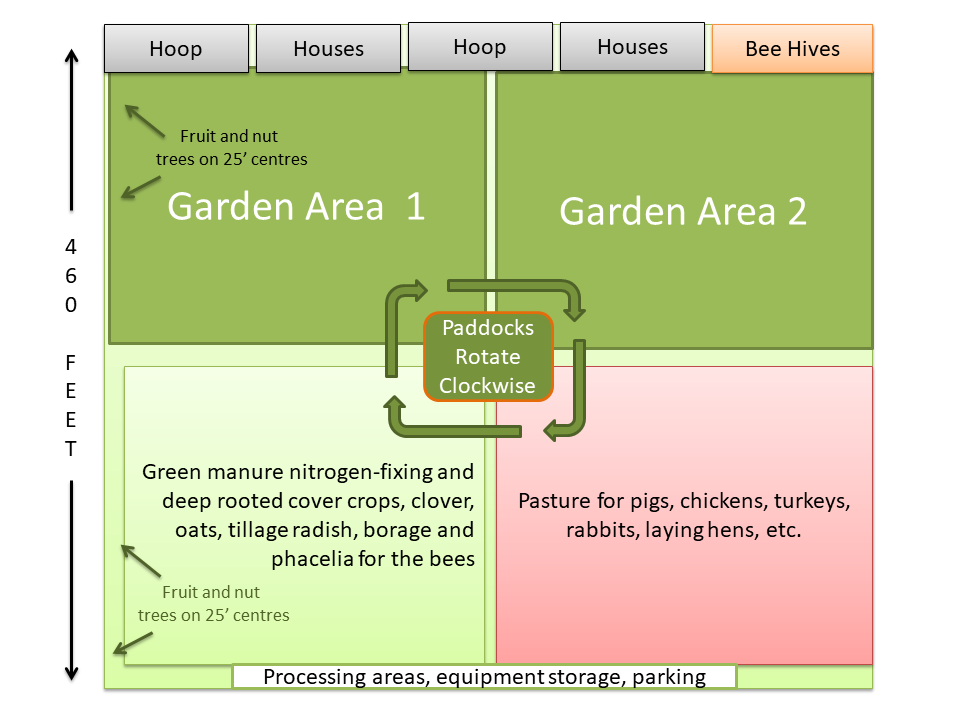Sustainable farming is a complex topic
What do we mean by 'sustainable farming'? Most definitions refer to ecologically-sound farming practices, financial sustainability of the farm, and the need to preserve that capacity for future generations.
We'll get into those topics, but also one more: the sustainability of the farmer.
Sustainable farming practices
New Terra Farm has been following sustainable farming practices since we launched 20 years ago. It only made sense that, if you live where you work (like most small farmers), you did not want to do anything that would harm or degrade your land.
So we rotate crops through our gardens. We keep good notes and take lots of pictures to remind us what grew where.
We integrate animal and garden production. We rotate chickens and piggies through our garden areas. They also help clean up the garden in the fall.
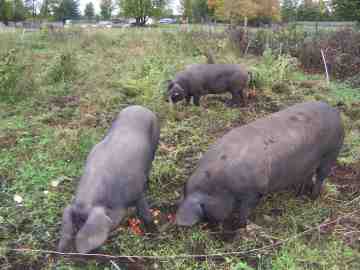 Electric mesh fencing keeps our British Large Blacks where we want 'em.
Electric mesh fencing keeps our British Large Blacks where we want 'em.We buy our feed from a local organic grain farmer, thus supporting other sustainable farmers.
We use cover cropping and well-composted horse bedding to maintain fertility in our gardens.
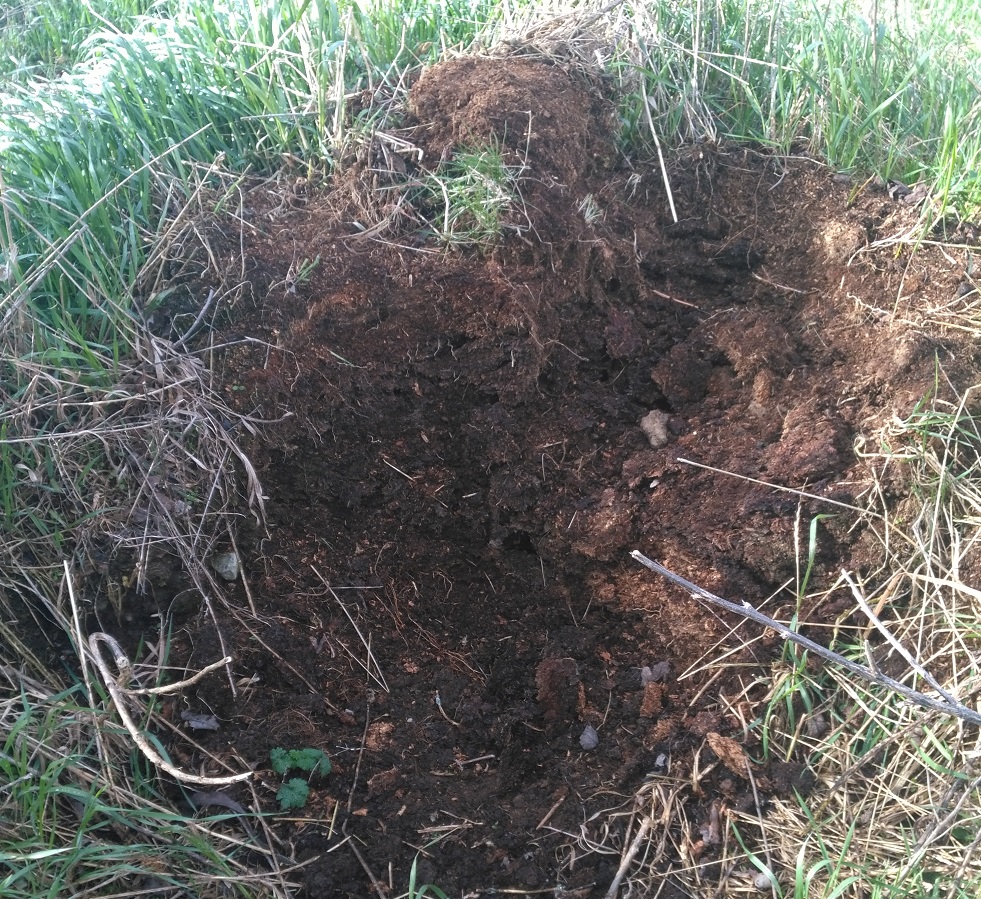 Three-year-old pile of composted horse bedding
Three-year-old pile of composted horse beddingWe pile our horse bedding in different spots each year so we can age it well before spreading.
We also get free wood chip mulch from the county road crew that cleans up fallen branches each spring. We give them a call, or catch them on the road if we see them, and they are happy to dump a truck load near our garden. The chips are from local trees, so we're not worried about importing any pests.
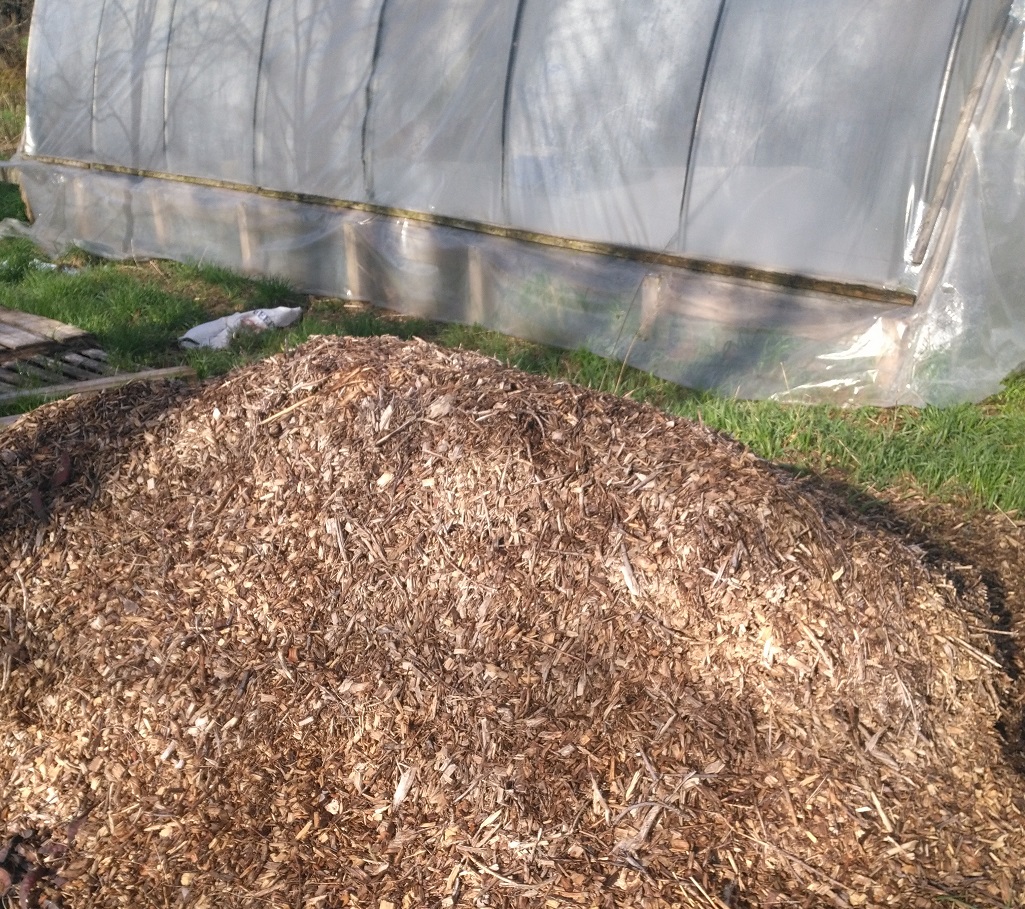 Free wood chip mulch piled next to our greenhouse
Free wood chip mulch piled next to our greenhouseWe use the wood chips to mulch paths in our permanent raised bed garden. They help keep the paths dry, and suppress weeds. They give a pleasant, cushion-y feel to walk on.
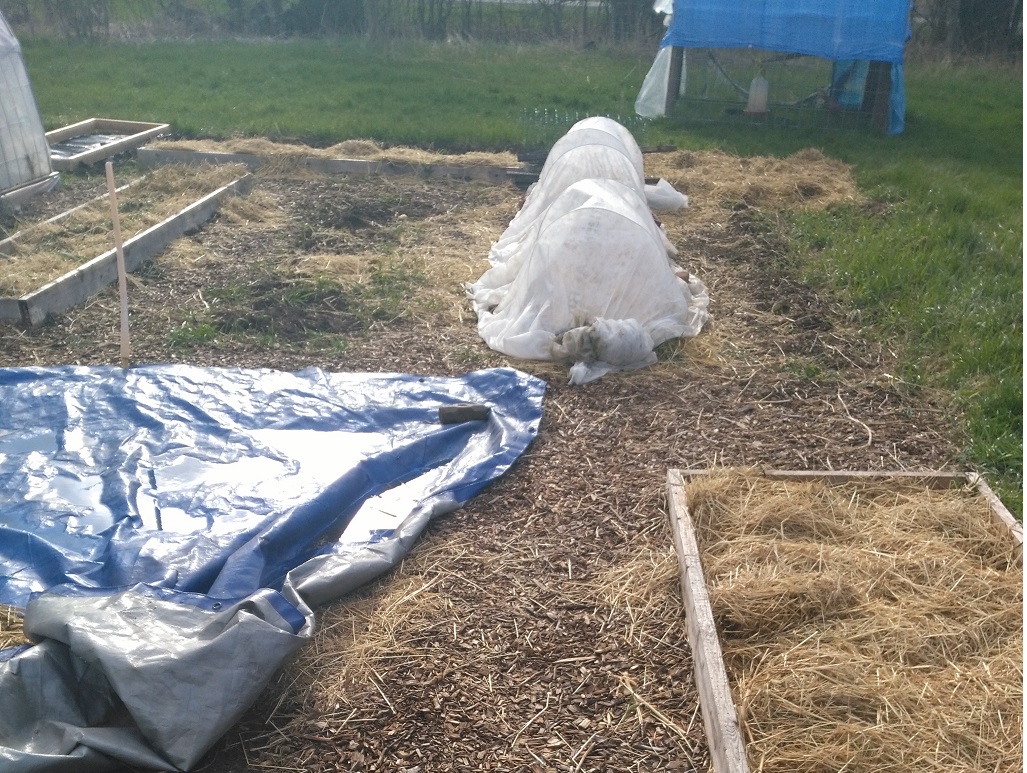 Framed beds, wood mulch, and a tarp suppressing weeds in our permanent garden
Framed beds, wood mulch, and a tarp suppressing weeds in our permanent gardenYou can see several sustainable farming practices in the picture above. The framed beds conserve water and nutrients. The old hay mulch in the beds feed the soil and suppress weeds. We also use grass clippings from around the garden in the onion beds.
The movable chicken coop in the background rotates around the garden throughout the summer. We toss less-than-perfect veggies to the birdies over the electric mesh fence that contains them and keeps them safe from predators.
The blue tarp is covering a garden space we haven't planted yet, to keep the weeds down. And the row cover is protecting an early planting of sugar snap peas from insects and late frost.
You can just see the small hoop house to the left in the picture. We built this from 16-foot cattle panels, and situated it in the middle of the garden.
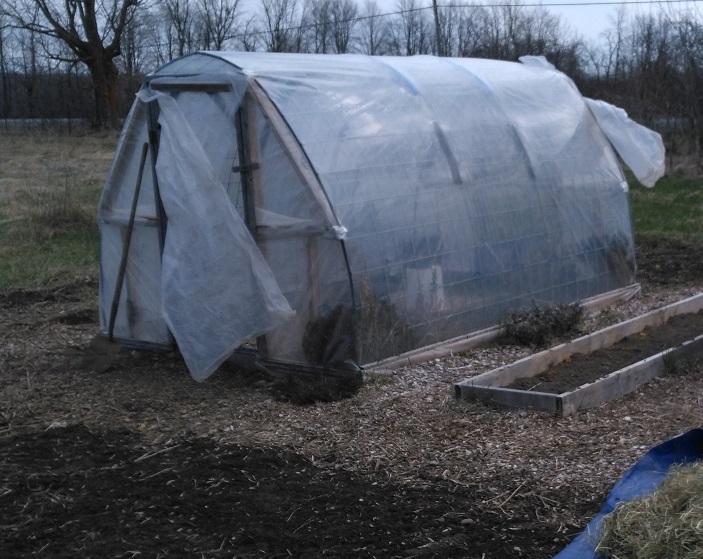 Here's a better shot of my 8x12 Cattle Panel Palace
Here's a better shot of my 8x12 Cattle Panel PalaceSmall greenhouses are another way to support sustainable farming. One of my farming inspirations, Eliot Coleman once estimated that it takes 1/20 of the energy to grow lettuce in a local greenhouse than to truck it in from some distant location.
Sustainable farming on a larger scale
My main gardens comprise more than an acre. You might wonder why I have a smaller, permanent raised bed garden as well.
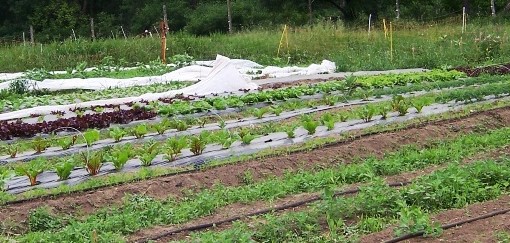 Floating row cover, drip irrigation and mulch film in my large sunny garden.
Floating row cover, drip irrigation and mulch film in my large sunny garden.First, the same principles apply; only the particular techniques are different. Second, as I've written elsewhere on my site, I don't do ADVICE, I do AUTOBIOGRAPHY.
I sometimes write about topics of interest to the home gardener as well as the small farmer. I don't discuss or recommend something I haven't tried for myself.
So we rotate crops, and use mulch and row cover, and integrate animal production into our large market garden as well.
You can read more about my 5-acre farm plan here.
Sustaining the farm and the farmer
These two things are interrelated. It can be tough for the small farmer to make a good living. The majority of small farmers work off-farm as well to pay the bills.
And farming can be a tough grind. It is often repetitive and physically exhausting. Can be psychically exhausting too, when it seems there is too much to do and not enough time/money to do it.
There is a single answer to both these problems; sound planning. A Success Plan for your farm helps to ensure you are not just doing things right; you are doing the right things.
A Success Plan is more than a business plan. It aligns your Vision, Mission, Goals and day-today Tasks so you always know 1 - where you are going; and 2- how to get there.
Having a handle on these two things makes the life of the small farmer less stressful, and more productive. It can help you make more farm income to relieve some of those other stresses, too.
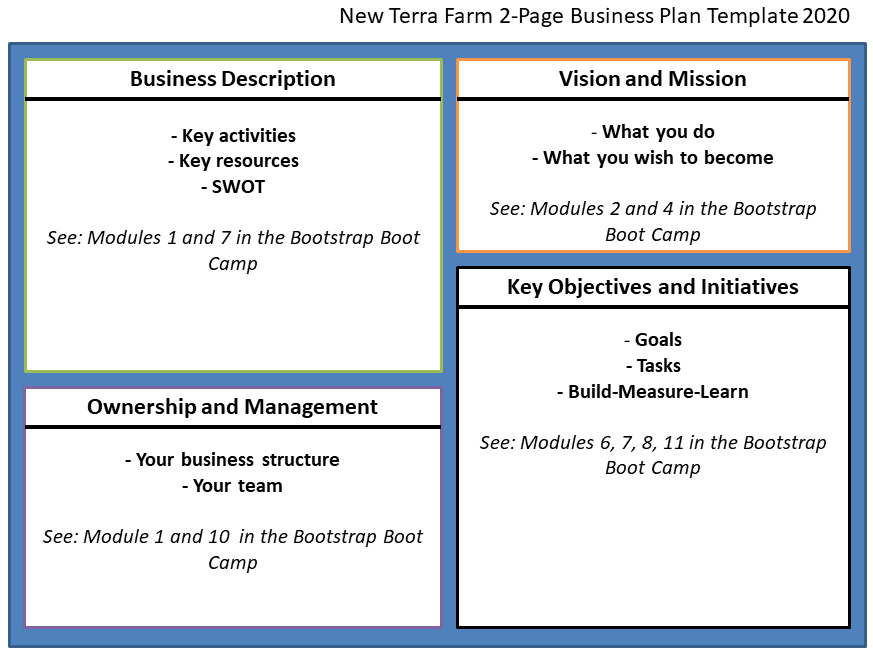
New for 2020: Download my FREE 2-page Business Plan Template.
This is a tool I developed for my students in the Bootstrap Boot Camp Success Plan course.
Enter your email to download the Business Plan Template.
- Home Page ›
- Sustainable Organic Farming ›
- Sustainable Farming at New Terra Farm
Recent Articles
-
Farm training for the new or wannabe farmer
Jan 02, 26 10:38 AM
Practical farm training from award-winning New Terra Farm -
Farm grown reviews of products recommended by New Terra Farm
Dec 04, 25 06:26 AM
Find great farm and garden products in my farm grown reviews -
Best Chicken Coop and Accessories for Small Farms and Homesteads
Nov 30, 25 09:18 AM
Looking for the best chicken coop? Here are the top coops, accessories, nest boxes, and gear to build a safe, productive poultry setup.
